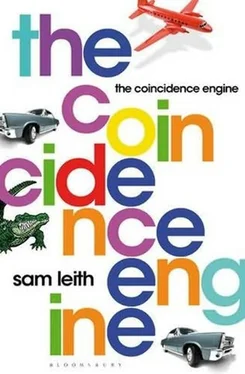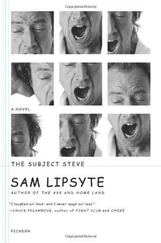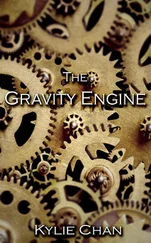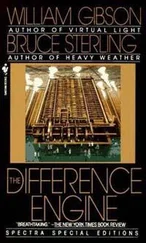‘I am not mad,’ he says, looking her very directly in the eyes. ‘I know that that is what they want everyone to think. And it suits me – for my own purposes, for different purposes. But I am not mad. I know exactly what they are doing. EXACTLY.’
He turns his head from her and roots at the foot of the hedge, turns back – looking cross, with a dandelion leaf tangled in his beard. ‘Exactly what they are doing. I am not mad.’
That is followed by another long silence and a furious bout of weed pulling.
It is early afternoon when he declares that he has to work. He does so in a sudden snap – a violence of gesture that takes her by surprise. She senses, suddenly, that he’s long past when he’d have started ordinarily, as if his gardening has been a distraction he has affected until it has become intolerable. The weeds he has been pulling are some way from his garden. They were there for a reason.
He walks briskly into the shack and shuts the door. Isla goes for a walk. The weather is pleasant enough. She walks a contour of the hill behind the shack, descends into a valley and marches up the other side until there is a pleasant ache in the tops of her legs, thinking all the way. She thinks how to approach him, how to coax him out. She has never done anything like this before.
Will he be finding her attractive? The thought has crossed her mind. He did have girlfriends when he was younger. He probably hasn’t had a woman since… unless… Why should she speculate? He’s an old man. She knows Mike would say: is it safe? She feels safe. He’s an old man. He’s reedy, pot-bellied. If he tried anything she could, with these strong thighs and these arms she goes swimming with… she feels safe.
But she wonders, just in the abstract, if he finds her attractive.
And so it goes. She returns later in the afternoon and knocks on the door. He lets her in. He has been in the chair at the table, writing on a yellow pad. He seems in a good mood.
‘My new work,’ he says, tilting the pad towards her. It’s in prose, very densely written, studded with what look like algebraic notations. She makes to peer more closely at it, but he snatches the pad away and puts it face down on the desk.
‘Tell me, Isla Holderness… what do you think happens to us when we think? When we want something?’
Isla raises both her eyebrows, opens her face, looks deferentially blank. Banacharski snorts. They don’t talk about his work again that night. But, as last night, she asks whether she can stay in her tent, and perhaps help him tomorrow and he assents with a courteous gesture.
And so they establish a routine. Isla helps him to cook, makes a few efforts to clean up the shack – though she knows better than to touch his mouse-nests of paper, let alone order them or be seen trying to read them. And, gently reasserting her interest, she piece by piece steers him into talking about his work. It is a slow and elliptical process.
‘I put it another way,’ he says one evening, apropos of nothing, and in the middle of what has so far seemed to be a conversation about the virtues of eating raw vegetables (he says he lived happily through one summer eating cow parsley and soaked nettles). ‘If everything is perfect – if our measurements add up, if we can measure that, and that, and that -’ he points with sudden violence to the verticals on the wall of the shack, just in the shadow of the hissing hurricane lamp – ‘and that angle is so, and that line is so, and that force is so… we can build a house. Yes? So when the winds blow, when the hurricane comes, we will be safe. You see?’
Isla learns simply to ignore this sort of thing, not to startle, to go with the sudden shifts in his conversation. His speech is like the patchwork prose of his letters. She had assumed they were written discontinuously, at different times of day and in different moods, as the storms of his madness blew themselves out, as signals swept from nerve to nerve in his brain and clarity came and went. It seems, though, that the shifts are almost instant. It is as if he is participating in half a dozen conversations, and simply tunes in and out of them – sometimes responding to her, sometimes to some cue elsewhere.
‘Now in here -’ He points to her head. ‘Now out here -’ He waves at the air. ‘A pretty fantasy. You can measure nearly. Very, very nearly. But you can’t measure precisely. True knowledge is impossible. I measure this once, then twice. Which is right? Then a third time. This is – what is the word? An analogy.’
Isla asks, is he talking about subatomic particles?
‘Not that – yes, that is part of it, but I mean something bigger than that. I mean that everything we are is a mistake in the measurement. Everything. This mistake – this is the devil’s gift to us. The devil broke the clockwork. Now…’ He looks at her, suddenly exultant, and raises his hands, palms outwards by the side of his face. ‘… CUCKOO! CUCKOO!’
Late another night, they are talking about time. It is something that Banacharski seems agitated by, a subject he returns to.
‘Imagine, see. Time is not a thing, not a thing that flows from one thing to another thing to another. It is a direction – a dimension. Does north flow? Does sideways flow? No. You can’t measure time because what do you measure it with?’
At another point he draws a circle on one of the sheets of paper and shows her. ‘Here and gone do not mean anything,’ he says. ‘Look. Make this axis time. This axis space. Here -’ he marks a sort of triangle inside the circle, shades it roughly in – ‘is the map of Alexander the Great in the world. And here. He is not “gone”: look. He is here: on the map between such a place and such a place and so-and-so BC and so-and-so BC.’
He draws another blob on another part of the circle. ‘And here is the map of Nicolas Banacharski in the world. In this world. And here -’ he draws another blob, this one overlapping the last – ‘is the map of Miss Isla Holderness in the world.’
That night he becomes a little tearful. ‘You have to understand, Isla,’ he says. ‘When I was a child I was a displaced person. Whenever you have a war, you have displaced persons, shifting from place to place. They are victims of chance. For me, there was the chance of where I was born and when I was born, and the chance that I was born at all. Everything was chance. What my mother saw. Where my father died. It was chance. One lived, one died. Chance that I was born, and not somebody else. I am trying to repair that. Do you understand? Think, like a play on words, perhaps – another chance.’
She touches his arm, and she sees wetness on his lips. ‘I am an old man, Isla Holderness. I am an old man.’
Later, he mumbles something she doesn’t think about until much, much later.
‘Nobody wants me,’ he says. ‘Nobody is coming for me. I promised nobody anything…’ he says at one point. He seems distressed. Isla takes a risk, and puts an arm awkwardly around his shoulder, and a charge seems to go through him. The yellowy whites of his eyes roll sharply towards her. He seems not just self-pitying, but scared.
Alex sat up in the bed under the thin motel sheet. He reached over to the little MDF unit screwed to the wall by the side of the bed and found his mobile phone in the half-light. It was the small hours of the morning, though he didn’t bother to check the display on the big digital alarm clock. The answer to the crossword game.
‘The set of all sets,’ Alex typed into his mobile phone, and pressed ‘send’.
‘In your face , Mr Rob,’ he said aloud, even though he was alone. He felt immensely comforted. Rob would be on his way to work, he thought. He pictured Rob, on the Noddy Train, as he without fail called the Docklands Light Railway, heading in to the job he boasted about but hated at PricewaterhouseCoopers or DeloitteDeLaZouch or whatever the company was called.
Читать дальше












